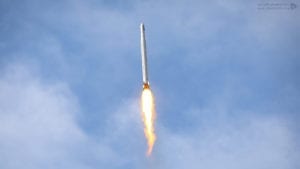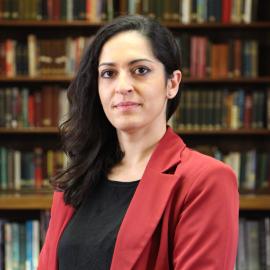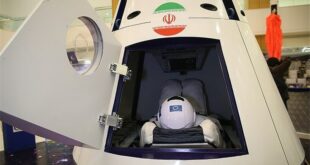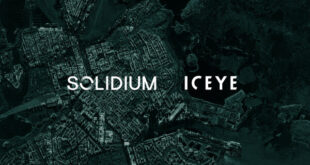
On 22 April 2020 Iran’s Islamic Revolutionary Guard Corps (IRGC) successfully launched a small satellite – the Noor-1 (Farsi for ‘Light’) – on a previously unseen satellite launch vehicle called the Qased. This week SpaceWatch.Global is running a series of perspectives on the strategic, political, and geopolitical implications of the launch for Iran, the Middle East region, Europe, and the United States. Today’s perspectives come courtesy of Dr. Aniseh Bassiri Tabrizi, Research Fellow at the Royal United Services Institute (RUSI) in London, United Kingdom (below), and Dr. Afshon Ostovar, a leading authority on the IRGC, of the Naval Postgraduate School in California, United States (see here).
What are the strategic implications of the launch for the UK and Europe?
The launch constitutes yet another element of concerns for the UK and Europe with regard to Iran’s military and technological progress and potential violations to UNSC 2231. However, in itself, the launch is unlikely to be considered an imminent security threat, given that, because of its technological differences, it was not equivalent to an ICBM test.
Why do you think Iran, and the IRGC in particular, carried out the launch given the problems the country has experienced with the Coronavirus pandemic, sanctions, as well as recent setbacks including the Ukrainian airliner shoot down and the killing of General Qassem Suleimani?
Iranian leaders are taking these steps to send a clear message to the US and counter a widespread perception in the Trump administration that Iran is on the brink of collapse because of maximum pressure, the impact of the Coronavirus pandemic, the killing of Soleimani and the overall state-society tensions which have emerged especially since November 2019.
Do you have any sense of how the satellite launch has been received among the Iranian public?
The launch of Noor might have been driven, among other reasons, also by the desire of the IRGC to regain some domestic legitimacy following the shooting of the Ukrainian airliner. However, it is more likely that the Iranian people have more pressing concerns, such as COVID-19 and the dire state of the economy, than the technological and military progress the IRGC is showcasing with the launch.
Why do you think the IRGC has created its own Space Command?
It is a move that signals the different nature of the IRGC-led space programme compared to the civilian one, the fact that it will have much less oversight from Iranian officials, and that its developments will be used mainly to send signals to those perceived by the IRGC as threatening the survival of the Islamic Republic – mainly the United States.
In your opinion, how should the UK and other countries respond, if at all, to the IRGC space programme?
While concerning, the IRGC space programme does not constitute an immediate threat for the UK and other issues, such as the nuclear programme, Iran’s destabilising activities in the region and its missile programme constitute more pressing concerns. The UK should thus keep an eye on developments on the space realm, making sure these do not amount to acquiring long-range missile technology, while continuing prioritising its more imminent strategic concerns. All of them, eventually, are likely to be addressed through de-escalation between Iran and the US, and this is where the UK’s main efforts should be addressed towards.

Dr. Aniseh Bassiri Tabrizi is Senior Research Fellow at the International Security Studies department at RUSI. Her research is concerned with security and geopolitics in the Middle East, with a particular focus on Iran and Iraq’s foreign and domestic politics, drivers of radicalisation, and drones proliferation. She earned her PhD from the Department of War Studies, King’s College London, with a dissertation on the diplomatic initiative of France, Germany and the UK on the Iranian nuclear issue. She has nearly a decade of experience in international relations and security in the Middle East working in academia, think tanks and consultancies, including King’s College London, the European Council on Foreign Relations (ECFR), Oxford Research Group, and various international consultancy firms. She frequently writes for outlets such as Foreign Policy, BBC News, The Telegraph, and appears as a commentator on the BBC, Al Jazeera, Sky News, CNBC, NPR, Bloomberg, The Wall Street Journal and The New York Times. She regularly tweets at @AnisehBassiri, and can be contacted at [email protected].
 SpaceWatch.Global An independent perspective on space
SpaceWatch.Global An independent perspective on space




